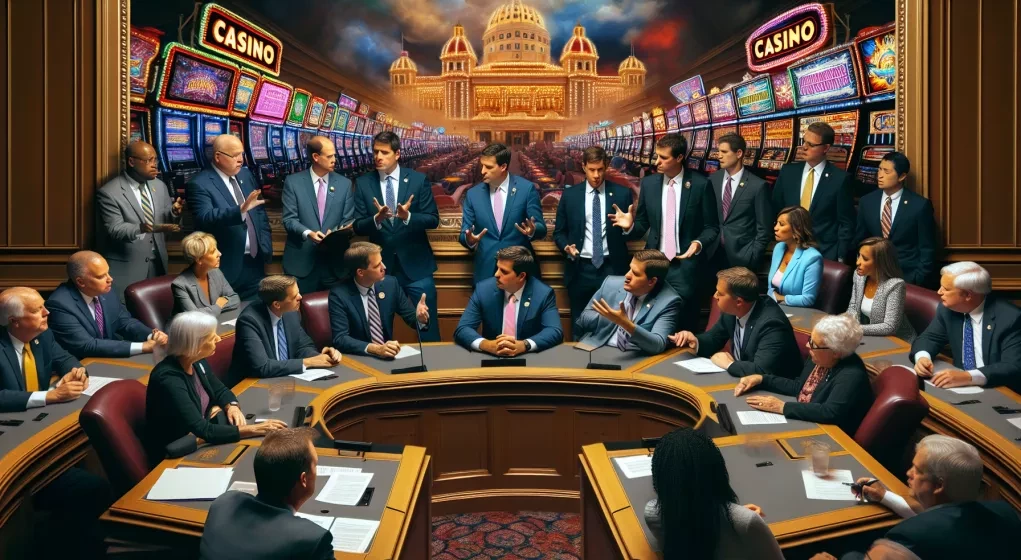In the heart of the American Midwest, nestled among the rolling fields of Iowa, a quiet revolution is stirring in the vibrant world of gaming and entertainment. Under the golden dome of the Des Moines capital building, lawmakers are contemplating a bold move: cutting the effective gaming tax that has long governed the state’s bustling casino industry.
Iowa’s glittering constellation of entertainment—of which 15 land-based commercial casinos, a trio of majestic riverboats, and an illustrious racino are the shining stars—beckons gamblers from near and far. These havens of leisure offer the allure of blinking slot machines, the clatter of dice, and the promise of fortune in a dance with chance and skill. Each year, these establishments contribute a significant portion of their gross gaming revenue (GGR) to the state’s coffers, most at the pinnacle 22% tax rate reserved for those recording over $3 million in annual GGR.
Enter Iowa Representative Jane Bloomingdale, imbued with vision and determination. Echoing the sentiment of equity across sectors, Bloomingdale has voiced a compelling argument: if tax burdens are eased upon individuals and corporations, should not the engines of entertainment and job creation also enjoy a lessened load? For Bloomingdale, it transcends simple fairness; it’s a strategic gambit to secure Iowa’s competitive edge in the gaming industry. Especially now, as fresh pastures for gamblers are tilled by neighboring Nebraska, it’s incumbent upon Iowa to bolster its gaming stalwarts, encouraging investments to renew their allure and grandeur.
House Study Bill 719, birthed from Bloomingdale’s legislative astuteness, seeks to gradually diminish the gaming tax over the coming three-year panorama. Visualize the tax rate descending like the gentle roll of a die, from 21% in the balmy future of July 2024, to an even more agreeable 20% the following year, and finally to the beckoning 19% as July 2026 dawns. This figure, like a jackpot frozen in time, would then perpetuate.
On this legislative journey, the bill has already earned its badge of progress with approval from a House Ways and Means subcommittee, poised for further contemplation and, perhaps, destined to bloom into a full-fledged House File.
The siren call of competition is not a fable lost on those who represent Iowa’s casino interests. Facing a burgeoning gaming industry in Nebraska, complete with five long-term establishments rising from its heartland, Iowa’s casino advocates—as expressed by lobbyist Mark Joyce—foresee a need for reinvention and rejuvenation. By offering a tax respite, these casinos could fuel renovations and amplify their appeal, ensuring that the Hawkeye State remains a gamblers’ paradise.
Yet, these are not uncharted territories for Iowa’s gaming titans. Their clout has been felt before, in corridors where politics meets enterprise. They staved off the specter of competition just last year by sealing a legislative lid on new casino licenses—a moratorium set to expire with the summer solstice.
As the narrative unfolds, there’s a palpable air of anticipation. Iowa stands at the cusp of revolution or constancy, with the die cast and fate’s hand hovering. The grand question remains: will the state lower the house’s advantage, or let the chips fall where they may? Only the roll of legislative action will tell.






